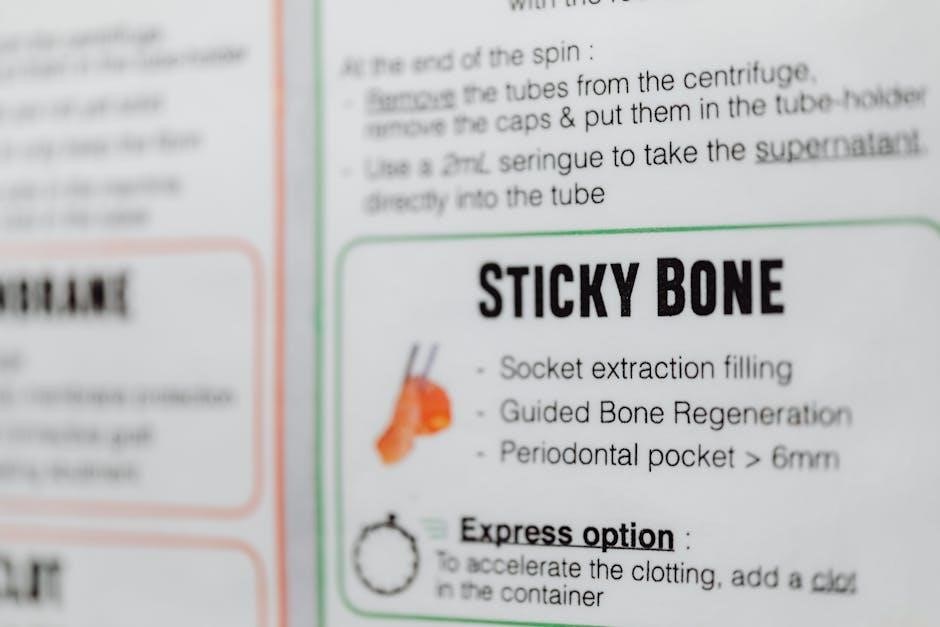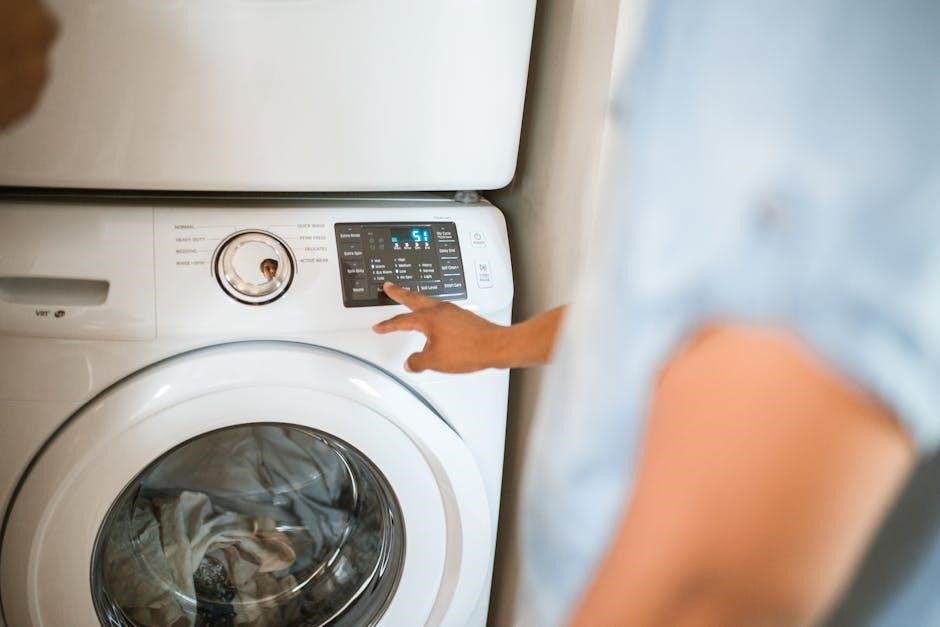Form 8308 is used to report sales or exchanges of partnership interests under Section 751(a), involving hot assets like unrealized receivables or inventory.
It ensures accurate tax reporting, preventing penalties and misclassification of taxable assets, while complying with IRS requirements for partnerships and their partners.
Overview of IRS Form 8308
IRS Form 8308, Report of a Sale or Exchange of Certain Partnership Interests, is used by partnerships to report sales or exchanges of partnership interests under Section 751(a). This form is required when the exchange involves “hot assets,” such as unrealized receivables or substantially appreciated inventory. The form ensures compliance with IRS regulations by providing detailed information about the transaction, including the transferor, transferee, and the nature of the assets involved. It plays a critical role in accurate tax reporting and preventing penalties for non-compliance with IRS rules.

Purpose of Reporting a Sale or Exchange of Partnership Interests
The primary purpose of reporting a sale or exchange of partnership interests using Form 8308 is to ensure compliance with IRS regulations and provide transparency in transactions involving partnership assets. This form is essential for accurately documenting the transfer of interests, especially when “hot assets” like unrealized receivables or inventory are involved. By reporting these transactions, partnerships can avoid penalties and ensure that all parties comply with tax obligations. The form also helps the IRS track taxable events and maintain the integrity of the tax reporting process for partnerships and their partners.
Updated IRS Regulations for Form 8308
The IRS updated Form 8308 in 2023, adding Parts III and IV, and provided penalty relief for partnerships to ensure compliance with new reporting requirements further.
2023 Changes to Form 8308 Filing Requirements
The IRS revised Form 8308 in 2023, expanding Parts I and II and adding Parts III and IV. These changes require partnerships to report additional details about Section 751(a) exchanges, including transferor and transferee information. Penalty relief was extended for partnerships failing to furnish complete forms, allowing more time to comply with the new requirements. The updates apply to transfers occurring on or after January 1, 2023, with the new Part IV due by January 31, 2024, aligning with the partnership return deadline.
Additions of Parts III and IV in Form 8308
Parts III and IV were added to Form 8308 in 2023, requiring partnerships to report additional details about Section 751(a) exchanges. Part IV now mandates calculations of gain or loss on the sale or exchange of partnership interests. These sections ensure clarity in reporting, particularly for transferor and transferee information. The additions align with IRS efforts to enhance transparency and accuracy in tax reporting, while providing penalty relief for partnerships to comply with the updated requirements.
Penalty Relief for Partnerships
The IRS has provided penalty relief for partnerships failing to furnish complete Form 8308, extending deadlines to January 31, 2025. This relief allows partnerships additional time to comply with updated reporting requirements, including Part IV, which mandates gain or loss calculations. The extension aims to ease the transition for partnerships adapting to the revised form and ensures fair treatment during the implementation period. This relief is part of broader efforts to support compliance with Section 751(a) exchange reporting.

Who Must File Form 8308
Partnerships must file Form 8308 to report sales or exchanges of partnership interests under Section 751(a). Individual partners may also have reporting obligations for their share of income.
Partnerships Required to File Form 8308
A partnership must file Form 8308 if it has notice of a Section 751(a) exchange, involving the sale or exchange of partnership interests attributable to unrealized receivables or substantially appreciated inventory. This includes cases where money or property is exchanged for all or part of a partnership interest. The form is mandated for partnerships undergoing such transactions to ensure compliance with IRS reporting requirements. Updated regulations now require additional disclosures in Parts III and IV, with penalty relief available for incomplete filings under specific conditions.
Individual Partners and Their Reporting Obligations
Individual partners must report their share of gains or losses from the sale or exchange of partnership interests on their personal tax returns. They rely on information provided by the partnership via Form 8308 to accurately report these amounts. Partners are not required to file Form 8308 themselves but must ensure their tax obligations are met using the data furnished by the partnership. Compliance with IRS guidelines is essential to avoid penalties and ensure proper tax reporting for both the partnership and its partners.
Filing Process and Deadlines
Form 8308 must be filed annually, with deadlines aligned to the partnership’s tax year. Partnerships must submit the form to the IRS and furnish it to partners by January 31, 2025.
When to File Form 8308
Form 8308 must be filed by the 15th day of the 4th month following the close of the partnership’s tax year, typically April 15 for calendar-year partnerships. Partnerships must submit the form to the IRS and furnish it to both the transferor and transferee partners. The IRS has provided penalty relief, allowing partnerships until January 31, 2025, to comply with the new reporting requirements for Section 751(a) exchanges. Timely filing ensures compliance and avoids penalties, with extensions available under specific circumstances.
How to Complete and Submit Form 8308
To complete Form 8308, partnerships must accurately fill out all sections, including Parts I through IV, ensuring correct transferor and transferee information. The form must be submitted to the IRS by the specified deadline and furnished to both the transferor and transferee partners. The completed form, including Part IV, must be provided to the relevant parties by January 31, 2025, to comply with IRS requirements. The IRS has offered penalty relief for partnerships meeting the extended deadline, emphasizing the importance of adhering to the instructions carefully.

Understanding Section 751(a) Exchanges
What Constitutes a Section 751(a) Exchange
A Section 751(a) exchange involves the transfer of partnership interests where money or property received is attributable to unrealized receivables or substantially appreciated inventory.
What Constitutes a Section 751(a) Exchange
A Section 751(a) exchange occurs when a partner sells or exchanges all or part of their partnership interest, and the consideration received includes unrealized receivables or substantially appreciated inventory. These assets, known as “hot assets,” must be reported on Form 8308 to ensure proper tax treatment. The exchange triggers special reporting requirements to accurately reflect the tax implications for both the partnership and the partners involved. This ensures compliance with IRS regulations and prevents misclassification of taxable assets.
The Role of Hot Assets in Section 751(a) Exchanges
Hot assets, such as unrealized receivables and substantially appreciated inventory, play a critical role in Section 751(a) exchanges. These assets, when transferred, trigger special tax rules requiring their separate recognition. Unlike other assets, hot assets do not qualify for capital gains treatment and may result in ordinary income tax liability. Their inclusion in a partnership interest sale or exchange necessitates detailed reporting on Form 8308 to ensure accurate tax compliance and proper allocation of taxable income among partners.
Impact on Real Estate Investors
Real estate investors must accurately report installment sales and capital gains on Form 8308, ensuring compliance with IRS rules for partnership interests and hot assets.
Reporting Installment Sales Under Form 8308
Installment sales of partnership interests must be reported on Form 8308, detailing each payment and its tax implications. Partnerships must disclose the sale details, including the transferor and transferee information, and calculate gains or losses attributable to hot assets. The revised instructions clarify reporting requirements for installment sales, ensuring compliance with IRS regulations. Accurate reporting is crucial to avoid penalties and ensure proper tax accounting for all parties involved in the transaction.
The sale or exchange of partnership interests under Section 751(a) triggers capital gains implications for partners. Gains attributable to hot assets, such as unrealized receivables or inventory, are treated as ordinary income. Partners must recognize gains proportionate to their interest in the partnership. Real estate investors should carefully track these transactions, as they directly impact tax liabilities. The revised Form 8308 requires detailed reporting to ensure accurate calculation of gains and compliance with IRS regulations, avoiding potential penalties for misreporting.

Future of Form 8308 and IRS Reporting
Capital Gains Implications for Partners
The sale or exchange of partnership interests under Section 751(a) triggers capital gains implications for partners. Gains attributable to hot assets, such as unrealized receivables or inventory, are treated as ordinary income. Partners must recognize gains proportionate to their interest in the partnership. Real estate investors should carefully track these transactions, as they directly impact tax liabilities. The revised Form 8308 requires detailed reporting to ensure accurate calculation of gains and compliance with IRS regulations, avoiding potential penalties for misreporting.
